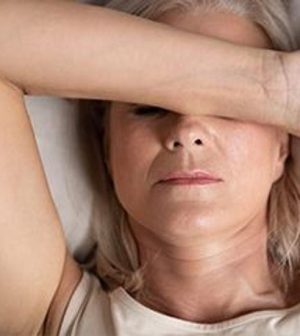- Could Your Grocery Store Meat Be Causing Recurring UTIs?
- Are You Making This Expensive Thermostat Error This Winter?
- Recognizing the Signs of Hypothyroidism
- 10 Strategies to Overcome Insomnia
- Could Artificial Sweeteners Be Aging the Brain Faster?
- Techniques for Soothing Your Nervous System
- Does the Water in Your House Smell Funny? Here’s Why
- Can a Daily Dose of Apple Cider Vinegar Actually Aid Weight Loss?
- 6 Health Beverages That Can Actually Spike Your Blood Sugar
- Treatment Options for Social Anxiety Disorder
Abuse Early in Life May Mean Tougher Menopause Decades Later

It’s well-known that hot flashes, sleep disturbances and symptoms of depression are common issues during menopause. Yet not every woman experiences these symptoms at the same level of severity.
A new study suggests that psychosocial stressors in childhood or early adulthood can exacerbate menopause symptoms almost two decades later. Such stressors include physical or sexual abuse, and even financial instability.
“This study provides additional evidence to support the link between adversity earlier in life with worse menopause symptoms and poorer well-being in midlife women,” said Dr. Stephanie Faubion, medical director for the North American Menopause Society.
“Additional study is needed to better understand the effect of cumulative exposure to chronic and repeated stress on the health of women in midlife and beyond,” Faubion added in a society news release.
Though there may be many reasons for the differences in symptom severity, in this study researchers looked for connections between psychosocial stressors from childhood through pregnancy and worse menopause symptoms in midlife 15 to 20 years later.
The study, by Sabrina Faleschini of Harvard Medical School and Harvard Pilgrim Health Care Institute, in Boston, and colleagues included nearly 700 women. About 38% reported physical abuse and also worse menopause symptoms, worse general health and greater depressive symptoms.
Another roughly 8% reported a history of sexual abuse. This also was associated with worse symptoms during menopause and worse general health, but not depressive symptoms.
For women with a history of financial instability, researchers also found an association with worse menopause symptoms, worse general health and greater depressive symptoms.
The research team did not find an association between psychosocial stressors and generalized anxiety symptoms at midlife.
These results highlight the long-lasting influence of adverse experiences on women’s physical and mental health, the society noted. Doctors should consider this when assessing the health of women in midlife, according to the society.
The findings were published online Sept. 14 in the journal Menopause.
More information
The U.S. National Institute on Aging has more on menopause.
SOURCE: North American Menopause Society, news release, Sept. 14, 2022
Source: HealthDay
Copyright © 2026 HealthDay. All rights reserved.










